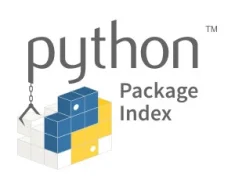The AI industry needs to stop chasing after artificial general intelligence if it is to build sustainable businesses, according to Nick Frosst, co-founder of generative AI startup Cohere.
“The sustainable way of making this technology, and creating a business off it, is by being very clear about what it does and what it doesn’t do and how it can help,” Frosst said at The Logic Summit in Toronto.
Talking Points
- There are sustainable business models for AI, but it may be more in helping businesses than focusing on creating human-like companions for consumers, said Nick Frosst, co-founder of Canada-based generative AI startup Cohere
- Industry has a responsibility to set expectations around the power and potential of AI, said Parinaz Sobhani, Sagard’s head of AI, at The Logic Summit in Toronto on Monday
He pointed to how generative AI is being used to improve customer service as an example of delivering real value for both consumers and businesses. “I see that value being created and compare it to the amount some companies who are focusing on a consumer angle are spending, and I don’t think that makes a ton of sense.”
Frosst said AI can still unlock major leaps in productivity going forward, predicting that in two years, most knowledge-economy workers will interact with large-language models (LLMs) as soon as they log into their computer each morning. For example, AI is making great strides in automating mundane tasks like summarizing doctor’s notes, he said—though tools made by some of Cohere’s rivals have been criticized for fabricating text in medical transcriptions.
“I don’t think this technology is going to scale with AGI, I don’t think we can keep throwing money at that,” Frosst said. “As a scientist, I really don’t think that’s ever going to happen.” He said that those in the industry need to be “very clear” about where AI can be useful, adding that he believes the opportunities are “incredible.”
Surging interest in AI has sparked a fundraising frenzy for companies like Toronto-based Cohere, which raised a US$500M Series D in July, valuing it at US$5.5B valuation. Despite the push for businesses to go big on implementing AI, some have questioned whether it’s a sustainable long-term plan. In June, a report by Goldman Sachs titled “Gen AI: Too much spend, too little benefit?” noted that, aside from chipmaker Nvidia, the flurry of investments in the technology “has little to show for it so far beyond reports of efficiency gains among developers.”
Cohere competitors like OpenAI and Anthropic are moving beyond LLMs, rolling out new applications like search and AI “agents” that can book travel and perform other tasks, respectively. Frosst said Cohere will also expand its product set in cases where it helps businesses use the startup’s models, such as by developing a new interface. When multiple customers have faced a problem, “you can definitely expect us to try to make that easier for them,” he said.
Frosst was speaking at The Logic Summit alongside Parinaz Sobhani, head of AI at asset management firm Sagard, which is pushing its portfolio companies to take advantage of the technology. Sobhani said that AI is increasingly affordable for businesses to access, but many don’t follow best practices for implementing the technology.
“We have really powerful technologies, and hopefully we set the right expectations,” said Sobhani. “It’s a responsibility for us, being around in this community longer than others, to make sure we really educate people about the limitations and also super powers of these technologies.”
“We have really powerful technologies, and hopefully we set the right expectations”
Cohere said earlier this year that Canadian companies have lagged behind other countries in adopting its tools, while the Canadian Chamber of Commerce has warned that the country could miss a generational opportunity if this trend continues.
Sobhani remains hopeful that AI could open up major opportunities for Canada, giving more children access to personalized tutoring, or giving more workers access to a virtual personal assistant.
“As an immigrant, it’s very exciting for me how it’s going to enable all of us,” said Sobhani. “As humans, we’ve been through so many other waves of automation. And every time we figure out how to work at a different level of abstraction, how to focus on problems that require more intelligence and reasoning. I think this time around we’re going to figure it out.”
— with files from Murad Hemmadi










